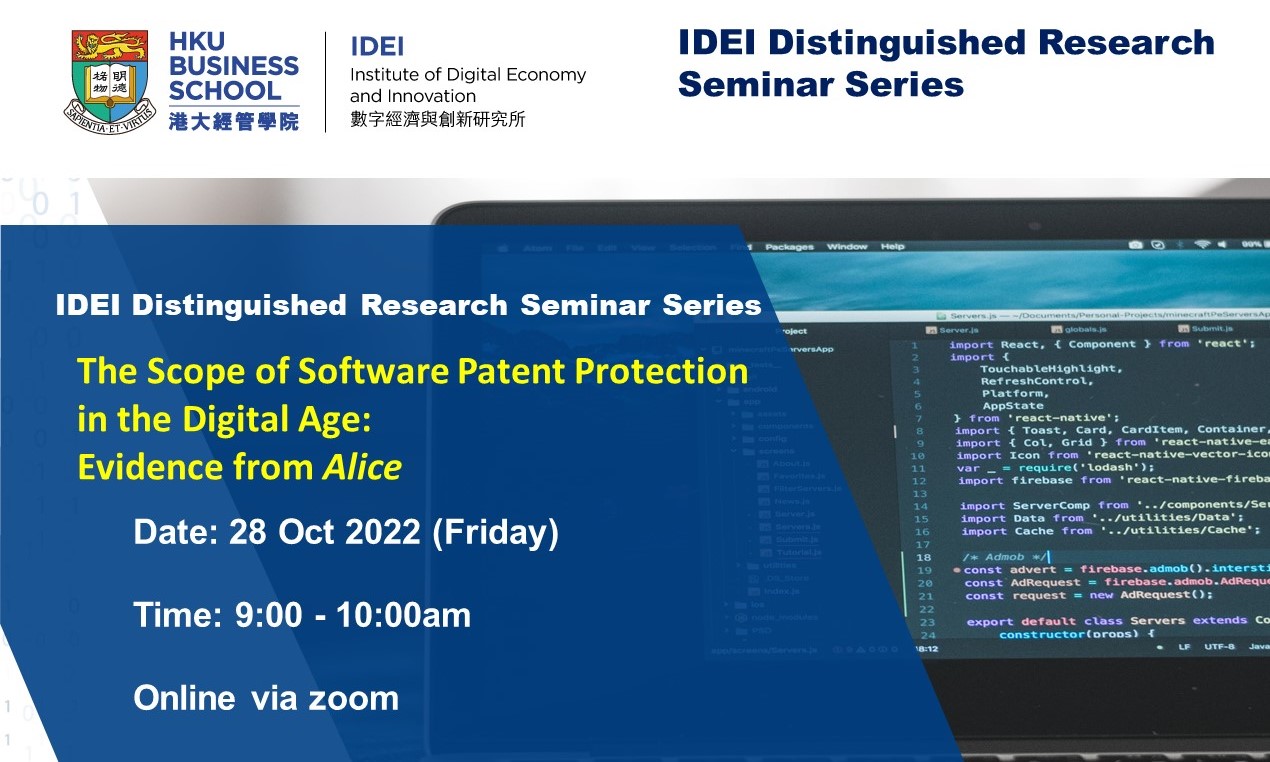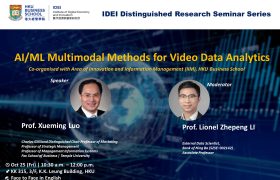
IDEI Distinguished Research Seminar Series
The Scope of Software Patent Protection in the Digital Age: Evidence from Alice

- 28 Oct 2022 | 9:00 a.m. — 10:00 a.m.
- Online via Zoom
- Registration: https://hku.au1.qualtrics.com/jfe/form/SV_55ysSSzZISlUkLQ
SPEAKER

Prof. Arun Rai
SPEAKER
Prof. Arun Rai
Regents’ Professor, University System of Georgia | Howard S. Starks Distinguished Chair, Robinson College of Business, Georgia State University
Arun Rai is Regents’ Professor of the University System of Georgia and holds the Howard S. Starks Distinguished Chair at the Robinson College of Business at Georgia State University. He is the Director and Co-founder, Robinson College of Business Center for Digital Innovation (CDIN) (previously named Center for Process Innovation), an interdisciplinary research center that focuses on digital innovation and promotes industry-university partnerships. He is Fellow of the Association for Information Systems (2010) and Distinguished Fellow of the INFORMS Information Systems Society (2014), and received the LEO Award from the Association for Information Systems for Lifetime Exceptional Contributions to the Information Systems discipline (2019). Prof. Rai served as Editor-in-Chief for the MIS Quarterly from 2016 to 2020, and has also served as Senior Editor for Information Systems Research, MIS Quarterly, and Journal of Strategic Information Systems and Associate Editor for journals such as Management Science.
MODERATOR
Prof. Yulin Fang Professor and Director of Institute of Digital Economy and Innovation, HKUBS
ABSTRACT
Software is the foundation of the digital economy. The scope of software patent protection and the social and private value of software patenting are hence central to recent policy debates. The landmark 2014 U.S. Supreme Court ruling in Alice Corp v. CLS Bank had a profound impact on software patenting, drastically narrowing the scope of patent protection on software innovation. We theorize and provide empirical evidence that a narrower scope of software patent protection is associated with a greater degree of open-source activities and improved sales in software firms. We also evaluate how individual firm’s ex ante software patent stock may moderate the proposed relationships. These findings offer insights into the roles of patent scope for software innovation in the digital economy and have important implications for the software patent and digital innovation literatures. They also have compelling implications for patent policies on software and software-related inventions, such as artificial intelligence, blockchains, cloud computing, and other emerging digital innovations.
HIGHLIGHTS
-
Institute of Digital Economy and InnovationThe University of Hong Kong,
Pokfulam Road, Hong Kong



-IDEI-Seminar-Backdrop-3-280x180.jpg)
